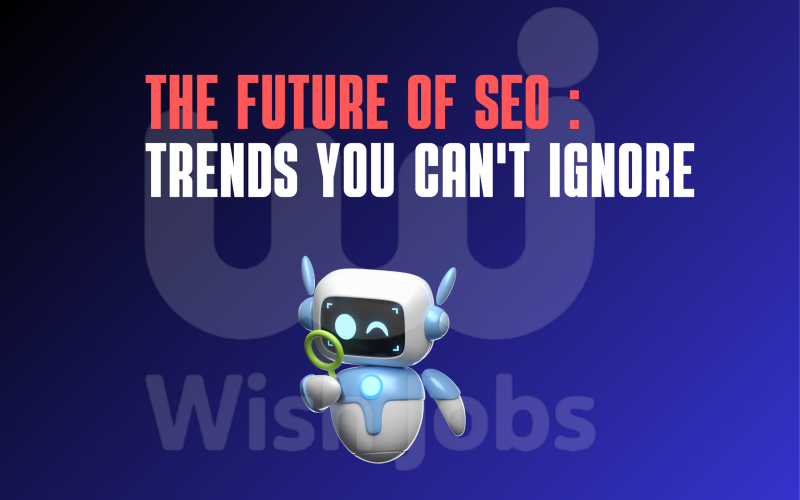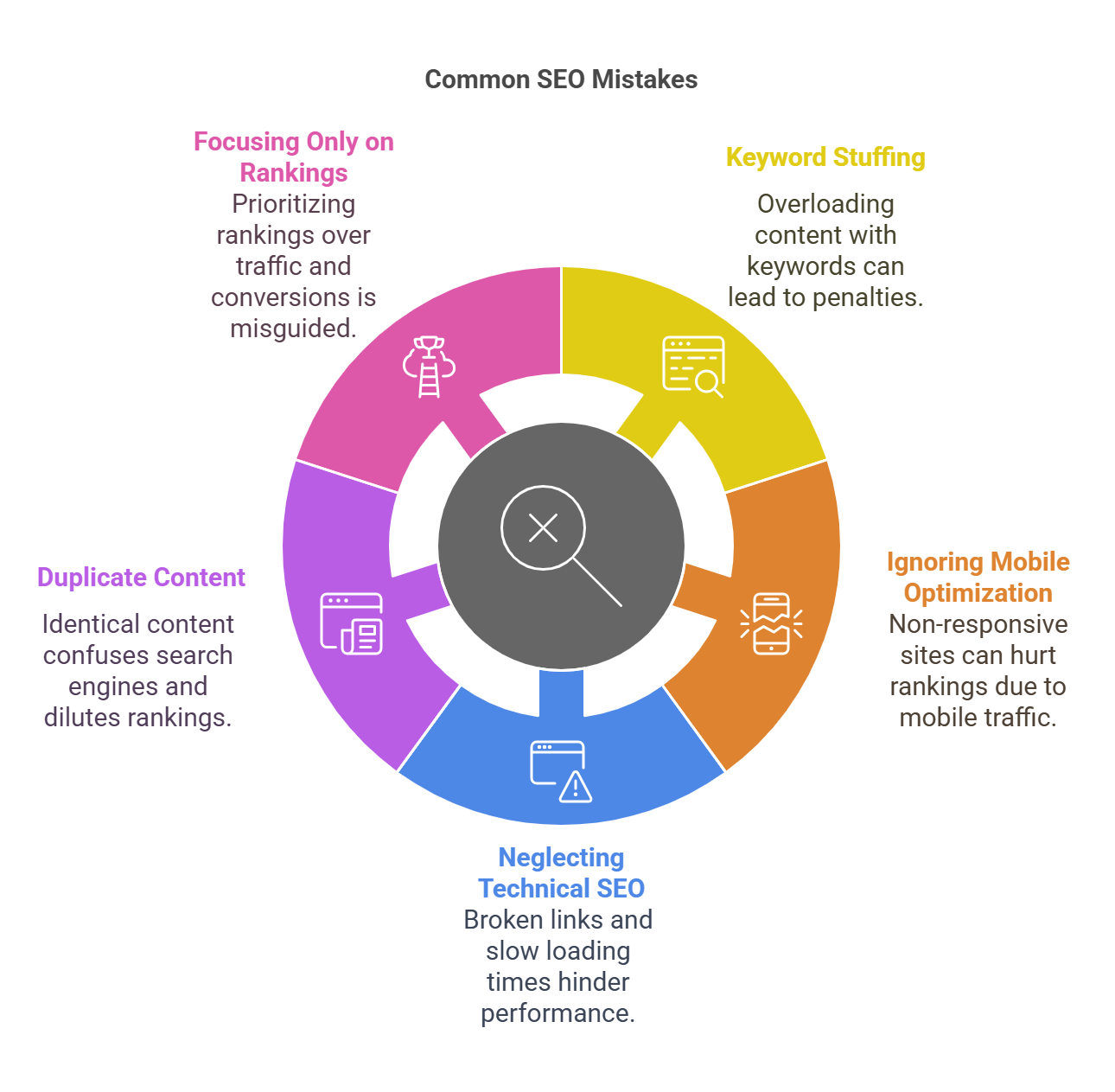Unlocking the Secrets of SEO: A Beginner's Guide

SEO (Search Engine Optimization) is the process of optimizing websites and content to rank higher in search engine results pages (SERPs) like Google
What is SEO? A Comprehensive Guide to Search Engine Optimization
Search Engine Optimization (SEO) is the practice of optimizing websites and online content to improve their visibility and ranking on search engine results pages (SERPs). By leveraging SEO strategies, businesses and individuals can attract more organic (non-paid) traffic, enhance user experience, and achieve their online goals. In this guide, we’ll explore what SEO is, why it matters, and how you can implement it effectively.
What is SEO?
SEO is the process of improving a website’s structure, content, and overall online presence to make it more appealing to search engines like Google, Bing, and Yahoo. The goal is to rank higher in search results for relevant keywords, driving more organic traffic to the site.
Search engines use complex algorithms to determine which pages to display for a given query. SEO involves understanding these algorithms and optimizing your site to meet their criteria. While the algorithms are constantly evolving, the core principles of SEO remain consistent.
Why is SEO Important?
- Increased Visibility and Traffic:
- Higher rankings on SERPs lead to more visibility, which translates to increased organic traffic.
- Studies show that the first page of Google captures 71% of search traffic clicks, with the top three results getting the majority of clicks.
- Cost-Effective Marketing:
- Unlike paid advertising, organic traffic generated through SEO is free. Once your site ranks well, it can continue to attract visitors without ongoing costs.
- Builds Credibility and Trust:
- Websites that rank higher on search engines are often perceived as more trustworthy and authoritative by users.
- Improves User Experience:
- SEO involves optimizing site speed, mobile-friendliness, and navigation, which enhances the overall user experience.
- Long-Term Results:
- While SEO takes time to show results, its effects are long-lasting compared to other marketing strategies.
How Does SEO Work?
Search engines use bots to crawl and index web pages. When a user enters a query, the search engine’s algorithm analyzes its index to find the most relevant and high-quality pages. SEO works by aligning your website with the factors that search engines consider when ranking pages. These factors can be categorized into three main areas:
_1738152397.png)
1. On-Page SEO
On-page SEO focuses on optimizing individual pages to improve their search rankings. Key elements include:
- Keyword Research: Identifying the terms and phrases your target audience is searching for.
- Content Optimization: Creating high-quality, relevant, and engaging content that incorporates target keywords naturally.
- Meta Tags: Writing compelling title tags, meta descriptions, and header tags to improve click-through rates.
- URL Structure: Using clean, descriptive URLs that include keywords.
- Internal Linking: Linking to other pages on your site to improve navigation and distribute link equity.
2. Off-Page SEO
Off-page SEO involves activities outside your website that impact your rankings. The most important aspect is link building, which refers to acquiring backlinks from other reputable websites. Other off-page SEO strategies include:
- Social Media Marketing: Promoting your content on social platforms to increase visibility and engagement.
- Guest Blogging: Writing articles for other websites to build authority and earn backlinks.
- Online Reviews: Encouraging positive reviews on platforms like Google My Business.
3. Technical SEO
Technical SEO ensures that your website meets the technical requirements of search engines. Key aspects include:
- Site Speed: Optimizing loading times to improve user experience and rankings.
- Mobile-Friendliness: Ensuring your site is responsive and works well on all devices.
- Crawlability: Making it easy for search engine bots to crawl and index your site.
- Structured Data: Using schema markup to help search engines understand your content better.
- HTTPS: Securing your site with an SSL certificate to protect user data.
Types of SEO
- Organic SEO:
- Focuses on improving rankings through non-paid methods like content creation, keyword optimization, and link building.
- Local SEO:
- Targets geographically specific searches, helping businesses attract customers in their area. Key tactics include optimizing Google My Business listings and acquiring local citations.
- E-commerce SEO:
- Tailored for online stores, this involves optimizing product pages, category pages, and implementing structured data for rich snippets.
- Voice Search SEO:
- Optimizing content for voice-activated searches, which often involve longer, conversational queries.
- Video SEO:
- Optimizing video content to rank on platforms like YouTube and appear in video search results.
Key SEO Strategies
- Keyword Research:
- Use tools like Google Keyword Planner, Ahrefs, or SEMrush to identify high-volume, low-competition keywords.
- Content Creation:
- Focus on creating valuable, informative, and engaging content that addresses user intent.
- Link Building:
- Earn backlinks from authoritative websites through guest blogging, outreach, and creating shareable content.
- User Experience (UX) Optimization:
- Improve site speed, mobile responsiveness, and navigation to keep users engaged.
- Analytics and Monitoring:
- Use tools like Google Analytics and Google Search Console to track performance and identify areas for improvement.
Common SEO Mistakes to Avoid

- Keyword Stuffing:
- Overloading content with keywords can lead to penalties from search engines.
- Ignoring Mobile Optimization:
- With mobile devices accounting for over half of global web traffic, a non-responsive site can hurt rankings.
- Neglecting Technical SEO:
- Issues like broken links, slow loading times, and poor crawlability can hinder your site’s performance.
- Duplicate Content:
- Publishing identical content across multiple pages can confuse search engines and dilute rankings.
- Focusing Only on Rankings:
- While rankings are important, the ultimate goal is to drive meaningful traffic and conversions.
The Future of SEO
SEO is constantly evolving as search engines update their algorithms and user behavior changes. Some emerging trends include:
- Artificial Intelligence (AI): Search engines are increasingly using AI to deliver more personalized and relevant results.
- Core Web Vitals: Google’s emphasis on page experience metrics like loading, interactivity, and visual stability.
- E-A-T (Expertise, Authority, Trustworthiness): Google prioritizes content from authoritative and trustworthy sources.
- Zero-Click Searches: With featured snippets and voice search, users often get answers directly on SERPs without clicking through to a website.
_1738152480.png)
- Share This Job



Write A Comment
No Comments